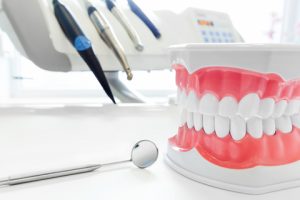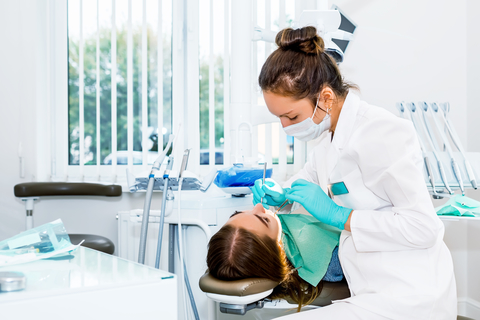Gum Recession: Causes, Symptoms, Treatments, and Prevention Tips
How can I stop or reverse my gum recession? The answer lies in a variety of self-care tips and treatments. Yes, gum recession is reversible and can be treated successfully if done at an early stage. While gum recession is a common condition, most people fail to notice their gums receding until when it’s too late. Read below to understand what is gum recession, the causes, symptoms, and treatment.
What is Gum Recession?
Receding gums is caused when the gum tissue margin surrounding the tooth cavity begins to wear off or pull back, thus exposing the teeth more or their roots. Subsequently, gaps form between the teeth and one’s gum line, making it easy for bacteria to accumulate.
The result is severe damage to the bone structure and supporting tissues if not treated early. Worst case scenario is tooth loss. Different factors cause it, and symptoms tend to vary. Therefore, it is advisable to get your gums checked immediately, when you notice one or more symptoms of receding gums.
Symptoms of Gum Recession
Below are some of the symptoms you should look out for in case you suspect your gums are receding.
- Bad breath
- Red, swollen gums
- Bleeding after flossing or brushing
- Visibly shrinking gums
- Weak and shaky teeth
- Pain at your gum line
- Exposed teeth roots

What Causes Gum To Recede?
Periodontal diseases and poor oral hygiene heavily contribute to gum recession. However, gum recession is not limited to people with poor oral hygiene. Some people suffer receding gums due to other factors, for instance, inherited factors such as gum thickness and teeth positioning. Tissue inflammation and physical wear of the gums are the primary reasons for gum recession.
Physical factors are also common causes of gum recession. Such includes:
- Vigorous teeth brushing and use of hard bristles: As much as maintaining perfect oral hygiene is good, over-brushing tends to damage your gums.
- Tongue piercing: Most people who get a tongue piercing enjoy the sensation of rubbing their stud along the gum line. Unfortunately, as time progresses, this behavior becomes subconscious, and the person becomes unaware that they are always rubbing their gums with the stud. Eventually, with enough persistence, this continuous rubbing will begin to force the gum line to recede.
- Tobacco products: There are many well-documented causes of smokeless tobacco causing chronic gum irritation. Another drawback of using tobacco products is that they can cause severe plaque buildup which is another cause of receding gums.
- Grinding and clenching your teeth: It puts a lot of pressure on your teeth, and could force your gums to recede. Once a dentist diagnoses a patient of grinding their teeth as they sleep, the dentist will usually prescribe a mouthguard.
Other factors include:
- Hormonal changes in women: Any fluctuations in the level of hormones in their body could make their gums more susceptible and sensitive to gum recession. The fluctuations in their hormone levels could occur at specific times such as menopause, pregnancy, or puberty.
- Genetics: Some people could be predisposed to developing chronic gum recession from misalignment or gum disease based on their genes, especially if one or both of their parents suffered from the same condition.
- Diabetes: Those who have diabetes are more prone to dental problems is that their immune system is compromised. This makes it harder for their body to fend off the bacteria that are responsible for causing gum disease.
- Gum trauma: Injuring the gums can create necrosis in gum tissue leading to cell death in the gums and a receding of the gum line.
- Medication: There are specific medications that can cause dry mouth by drying up saliva production. When the mouth dries out, the gums don’t receive the moisture they need to keep the tissues hydrated. Less saliva leads to less moisture in the mouth, which then means your mouth tissues are vulnerable to injuries and bacterial infections. This dehydration effect causes the gum line to recede. People who experience dry mouth on a regular basis due to the consumption of medication may suffer a rapid deterioration in the health of their gums.
- Compromised immune system: Bacterial infections are the most common cause of gum disease. People with a weak immune function may not have the ability to fight off pending infectious diseases. Those individuals suffering from autoimmune disorders or immune dysfunction from related conditions, such as HIV, are prone to developing receding gums due to a combination of factors.
- Sugary Foods: People who frequently consume sugar-based foods, such as candy, will end up experiencing declining levels of oral health, and a receding gum line.
- Soda: The acid in all soft drinks corrodes away the enamel on your teeth, leaving them unprotected. All of the acid in the beverage also leads to a receding of the gum line, and an overall deterioration in oral health.
- Dentures that are worn too tightly over gum tissue, causing the gums to push against the denture: To avoid this, the denture should be tightened properly, and care taken to not bite down into the gum tissue. Sucking of the denture should always be avoided. A denture can also cause the gums to recede from the tooth due to a loosening of the teeth. Dentures should be worn for several months before trying to remove them. To prevent the gums from moving out of their sockets, you need to keep the denture in place.
- Poor oral hygiene is one of the biggest causes of gum recession: Make sure that your mouth is regularly cleaned professionally. Brush and floss your teeth regularly. Make sure to practice good dental hygiene to avoid further complications down the road. Poor oral hygiene can also contribute to gum recession because it can damage the mucous membranes that line the gum tissue underneath of the teeth. When this mucous membrane gets damaged, it becomes irritated and thickens.
- Tooth decay is also a major cause of gum recession: You may find that the plaque forms between your teeth and the gums. The bacteria from this hardened plaque buildup may cause the tooth to decay, which can cause the gums to swell and eventually become infected. Clean your teeth regularly, and be sure to brush your teeth twice daily to remove the plaque buildup that is eating away at the tooth’s enamel.
How to Fix Gum Recession
- Antiseptic chips
- Topical antibiotic gel
- Enzyme suppressants
- Antimicrobial mouthwash
- Gum recession surgery: These surgical procedures can be used to treat and reverse gum recession.
- Regeneration: Regeneration of lost bone and tissues is recommended for receding gums. The dentist folds back the tissues and eliminates the bacteria. He/she then applies a regenerative material, for instance, graft tissue or tissue-stimulating protein, to encourage natural regeneration.
- Open flap scaling: The dentist folds back the receding gum tissues and removes the bacteria. He/she then secures the tissue in place over the root, thus removing the pockets.
- Orthodontic treatments that gradually move the teeth’s position, which eventually corrects the gum margin and makes it easy to clean your teeth.
- Removable gum veneers
Can Receding Gums Be Prevented?
- Visit your dentist or periodontist at least twice in a year.
- Always use a soft-bristled toothbrush.
- Quit smoking
- Eat a well-balanced diet.
In Conclusion
The post Gum Recession: Causes, Symptoms, Treatments, and Prevention Tips appeared first on GQ Central.

Comments are closed